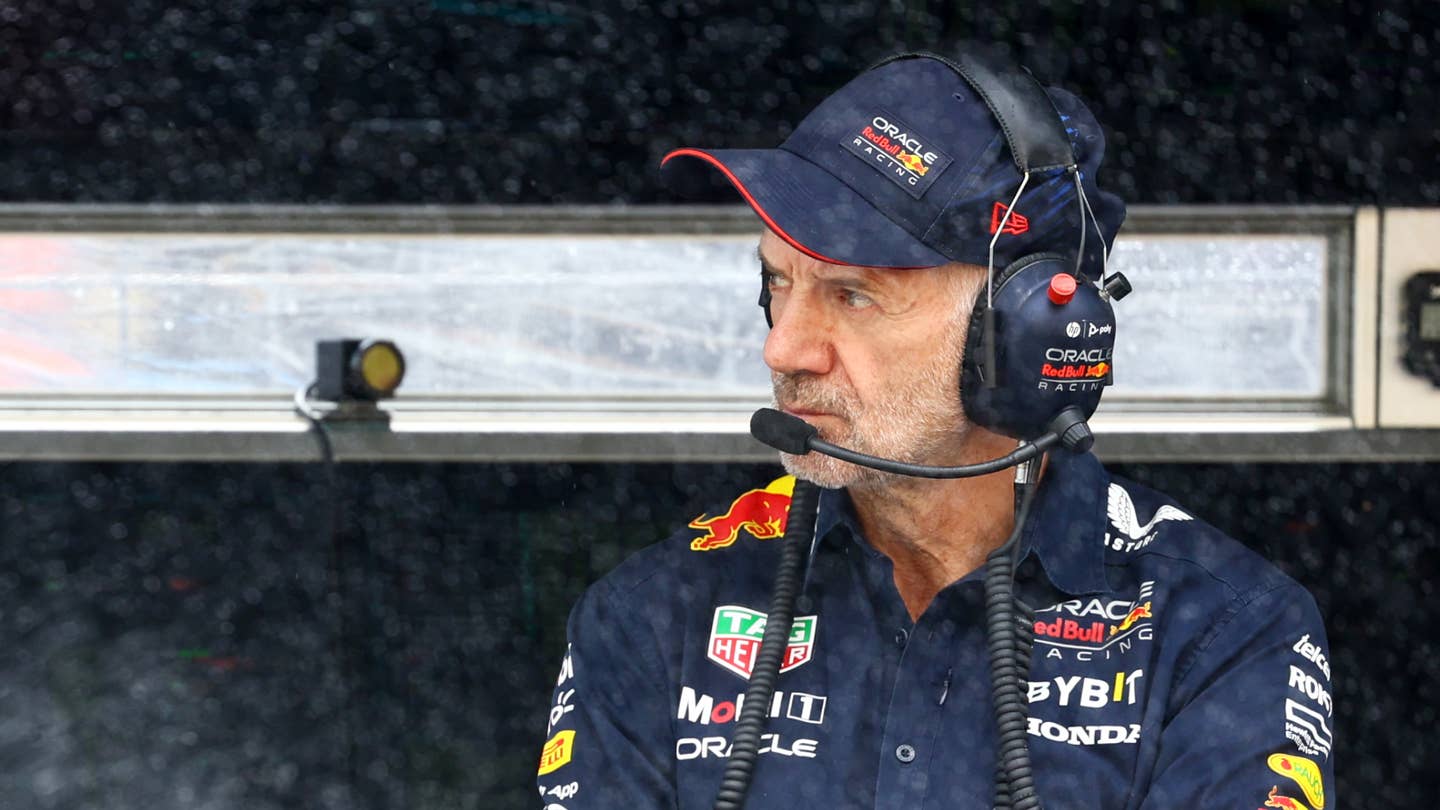Famed designer Adrian Newey revealed how Ghosn’s attitude quickly soured relations between Red Bull and its formerly-winning engine supplier.

Red Bull and Renault had an amazing run of success in their early days together, racking up championships like nobody’s business. That positive relationship then rapidly fell apart in the middle of last decade when results were suddenly harder to come by. In a podcast appearance by famed Formula 1 designer Adrian Newey, we’re given a much better understanding of why things turned sour so quickly.
Speaking on the latest episode of F1’s Beyond The Grid podcast, Newey outlined exactly how Red Bull came to fall out with its engine supplier. Despite winning four driver’s and four constructor’s championships in a row, the dawn of the turbo-hybrid era had proven difficult for the successful partnership. Red Bull laid much of the blame at Renault’s door, with team principal Christian Horner publically blasting the engine as “quite undrivable” in the midst of the troubled 2014 season.
“We were in this position where Renault hadn’t produced a competitive engine in the turbo hybrid era,” said Newey in the F1 Podcast. “You know, that happens first year. Okay, it’s new rules, we all make mistakes.” Crisis talks between the team and Renault were arranged to try and get some action on the engine issues. “We went to see Carlos Ghosn, the boss of Renault at Champs-Élysées, Christian, Helmut and myself, to try to put pressure on him to up the budget and basically ask if he can free more resources so the engine division can accelerate their program… they needed more people and more money,” Newey added.
The response from the Renault boss couldn’t have been more negative. “Ghosn’s reply was ‘I have no interest in Formula 1. I am only in it because my marketing people say I should be,’” noted Newey, adding “That was such a depressing place to be.” It was a time when Red Bull had no other viable options, with Mercedes and Ferrari both unlikely to supply a competitive power unit. “We were stuck with Renault for some huge amount of time in the future… and we couldn’t be properly competitive. It was such a dark tunnel.”
With Red Bull frustrated with Renault’s lack of interest, the relationship only devolved further. From 2016 to 2018, the Renault engines were badged as “TAG-Heuer” as a direct result of the enmity between the formerly winning partnership. Similarly, Infiniti withdrew its sponsorship of Red Bull, due to its position as a part of the broader Nissan-Renault corporate alliance.
The problems also saw Newey disillusioned with Red Bull’s future prospects. The legendary designer at one point considered a move to Ferrari and eventually pulled back from F1 somewhat to pursue designing sailboats on the side. He would later return to a more hands-on role and is often seen on the Red Bull pit wall this season.
Red Bull would eventually take on Honda engines in 2019, a year after sister team Scuderia Toro Rosso had first run the engines. The new partnership found championship success in short order, with Max Verstappen claiming a championship in controversial circumstances in 2021. The partnership with Honda has continued to go on to greater heights, with championship wins in 2022 and a dominating performance this year.
While the dispute between Red Bull and Renault was common knowledge at the time, it’s interesting to note the direct role of company head Carlos Ghosn in negotiations between the two. Perhaps a more sporting-oriented boss might have salvaged relations and secured Renault more success on the track—something the automaker hasn’t known in F1 for some time now.
Got a tip? Let the author know: lewin@thedrive.com

